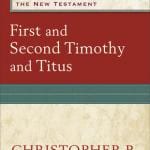By Joshua R. Farris and S. Mark Hamilton
In our previous post, “Is Nothing Sacred?” we put several important questions to evangelicals who’ve adopted the practice of revising hymns. You’ll recall that we raised both theological and historical warning flags. You’ll also recall that we gave quite a lot of attention to Chris Tomlin’s “version” of John Newton’s, famed, “Amazing Grace.” Musically speaking, these revisions are things like minor melodic changes, or the addition of some crecendoing effect—basically whatever is popular these days. Lyrically speaking, these revisions are mostly weak-sauce, ballad-like-choruses that sound like some stream-of-consciousness string of Church-speak. If you take the music out of some of the choruses that are making their way into ancient hymns, something amazing happens. They actually read like chanting gibberish. Sure, they rhyme occasionally. But mostly they sound like desperate, repetitive, nonsense. Don’t just take our word for it. Try this sometime: Copy out, by hand, the original and full hymn, “Amazing Grace.” Then copy out, again by hand, Tomlin’s changes. Compare the two and see which one really moves you. It’s amazing what happens when the music goes away.
At this point we should reiterate, we’ve got nothing against Tomlin. We neither know him nor do we know much about his musical exploits outside of a handful of his popularly played songs. We are more than aware of his adaptation of Newton’s poetical masterpiece, “Amazing Grace.” How could we not be, really? Rare is the occasion where Newton’s work can be heard sans Tomlin’s lyrical static. For reason of its overwhelming popularity, Tomlin’s adaptation of “Amazing Grace” served (in our previous article) as representative of an unfortunately not-so-small movement of musical “artists” whom we argued have polluted the substantive lyrical genius of the past with the paltry lyrical triviality of the present. It was the launch pad for asking readers to consider what the fallout will be for the people of God if evangelicals continue to validate practices that distance themselves from their rich theological and musical inheritance.
When we think just how pervasive this revisionist practice has become, a cartoon image of a factory assembly line comes to mind. Imagine a conveyor belt along which travels strategically placed unmarked glass jars. As the jars move down the line, each one is automatically and slowly filled with various word-ingredients. Every jar is filled with some of them, but not every jar is fill with all of them. Sometimes the recipe only calls for words like: ‘Glory,’ ‘Worship,’ ‘Me,’ ‘Love,’ ‘Lord,’ ‘Praise,’ ‘Cross,’ ‘Christ,’ and ‘Savior’. Other times, the recipe calls for the addition of ‘Greater,’ ‘Jesus,’ ‘I,’ ’Magnify,’ ‘Wild,’ ‘Stars,’ ‘Forever,’ ‘Name,’ and ‘Blood.’ Near the end of the line, each jar is closed up, its ingredients shaken—mixed up into different patterns—and then labeled according to Christian musical celebrity that’s making it. In so doing, some of these musical “artists” think they are helping bring the tradition back in the name of “relevance” and wear this revisionist practice like a badge of honor. Sadly, there are a growing number of evangelicals who have no clue that hymns are being revised. Still others, among whom we find ourselves, have some serious concerns and outright objections to such practices.
Tomlin and company seem to think their efforts to retrieve the tradition requires the augmentation of the original message. Interestingly, their efforts are actually passing on a tradition of their own, one which says that it’s okay to corrupt the past with the present. To this, we asked the simple question: where does it stop? Who will be the first contemporary evangelical to start thinking its okay to corrupt a creed in the name of “relevance?”
We all understand that some things in Christendom change over time (If you’re curious about this, just look at something like the doctrine of atonement. It’s undergone all sort of change through the centuries). But there’s a good kind of change and then there’s a bad kind. There’s development and then there’s devolvement. What Tomlin and company have done with the musical tradition of the church is assuredly the latter. You can tell this is devolvement because, as also we pointed out in our previous article, there are scores of evangelicals that have no clue that Newton’s hymn has been co-opted by Tomlin. Astonishingly, some think Tomlin wrote the whole thing himself! Some evangelicals have no clue who Newton even was!
Just in case the offensiveness of this practice hasn’t quite landed on you, let’s briefly consider another, equally ruinous example of a historical treasure like “Amazing Grace” that’s been similarly corrupted. Published in 1779, as a part of a collection of John Newton’s Olney Hymnal (under the original title, “Praise the Fountain Opened”), generations of Christians have sung William Cowper’s (pronounced “Cooper”) famous poetic words, ‘There is a Fountain filled with blood, drawn from Immanuel’s veins, and sinners plunged beneath that flood lose all their guilty stains.’ Verse after verse, Cowper’s song contains some of the richest of soul-foods (richer still, if you know Cowper’s back-story). It was not until recently, however, that this paragon of Christian hymnody was defiled by the interruption of a simple bridge that goes, ‘Hallelujah, fountain full of love for us, poured out on us; my sin washed white, I am in awe of you’, composed by musical artists, Shane and Shane. Now, lest you think we have something against Shane and Shane, we don’t. They’ve written lots of good music. Nevertheless, like Tomlin, they too have contributed to the devolvement we talked about in the previous paragraph. If you don’t think so, experiment with the writing exercise we suggested at the outset of this article and see what you come up with.
Now, lest you think our objection to such practices is only a problem that’s cropped by in recent days, consider the following fiery sentiment of John and Charles Wesley, to whom we owe a monumental debt of gratitude for such hymns as, “O for a Thousand Tongues to Sing”, “Rejoice, the Lord is King”, and “Love Divine, All Loves Excelling”, to name a few. In a very public rebuke to other musicians at the time, John Wesley asserts,
I beg leave to mention a thought which has been long upon my mind, and which I should long ago have inserted in the public papers, had I not been unwilling to stir up a nest of hornets. Many gentlemen have my brother and me (though without naming us) the honor to reprint many of our hymns. Now they are perfectly welcome to do so, provided they print them just as they are. But I desire they would not attempt to amend them, for they are really not able. None of them is able to amend either the sense or the verse. Therefore, I must beg of them these two favors: either to let them stand just as they are, to take things for better or worse, or to add the true reading in the margin, or at the bottom of the page, that we may no longer be accountable either for the nonsense or for the doggerel of other men.[1]
Hopefully, you get the point. And with that, let’s land this plane.
This and our previous article were written to provoke readers to think about the long-term impact which the co-opting and appropriating ancient hymnody by contemporary Christian song-writers will have—and is currently having—on the dogmatic inheritance of the church. We are not hereby registering a complaint among the catalogue of complaints about the things like loudness of the musical worship or the grapejuice+chicklet-wafer-thing served from the Lord’s table or the untucked-shirt-wearing, theologically uneducated camp counselor giving “talks” instead of homilies to the church. No doubt, there’s a place for registering such complaints, but it’s not here.
We are, however, registering a complaint about the contemporary evangelical posture toward traditional hymns. In short, we think it’s a bad posture and needs to be rethought. But rather than just rant about what shouldn’t be done, what should be done?
Well, for one thing, we ought to draw attention to the fact there are some wonderful exceptions to the practice of re-writing hymns that we’ve been at pains to make clear. Take His Mercy is More by Matt Boswell and Matt Papa or I Will Wait for You by Shane and Shane (we told you they write some good things) as two wonderful examples of recently composed hymn-like songs. This, it seems to us, is a noble practice. But it’s not the norm.
There is something of a right impulse in the recent trends we’ve spent two articles criticizing, namely the desire to retrieve from the great hymn writers who have supplied us with a reservoir of theological reflection. Retrieval of the age-old transcendent practices of the church inform us and unite us to the universal church, which is bigger than us presently, spanning far back into the past and will continue after us. This is what some (and more should) call the Holy Tradition. It brings to mind that famous axiom, “Tradition is the living faith of the dead. Traditionalism is the dead faith of the living.”[2] The tradition we’ve received isn’t just the Nicene creed or the theological writings of theologians like Jonathan Edwards, but the form, practice, rhythms, and seasons that unite the church and continue to point us to the God of our redemption. Hymn singing and writing is a part of this tradition and one we should be retrieving, but on their own terms.
Part of the healthy practice of retrieval is to look back to those cherished hymns, as they were written, and not only study them, but sing them, for the nourishment of faith. Another healthy way to retrieve from the past hymns would be the practice of creating new hymns (like those we just mentioned) that are inspired by the richness of the old hymns. To do this rightly requires that we are steeped in the patterns of thinking characteristic of the cloud of witnesses that precede us.
So, what is this tendency toward revision of cherished hymns? Are they somehow not good enough? Are they no longer relevant? What is this whole fixation on relevance anyway? And, when did the traditional practice of hymn writing and singing become irrelevant? If you want to do something new, take Wesley’s advice and write your own hymn. As for the cherished hymns of old, best leave them alone!
[1] John Wesley, Hymns for the Use of the People called Methodists (London: Wesley Conference Office, 1876), ii.
[2] Jaroslav Pelikan, The Christian Tradition: A History of the Development of Doctrine, vol. 1, The Emergence of the Catholic Tradition (100-600). (Chicago: University of Chicago Press, 1971), p. 9.
J.R. Farris (PhD, University of Bristol) and S.M. Hamilton (PhD, Free University of Amsterdam)












